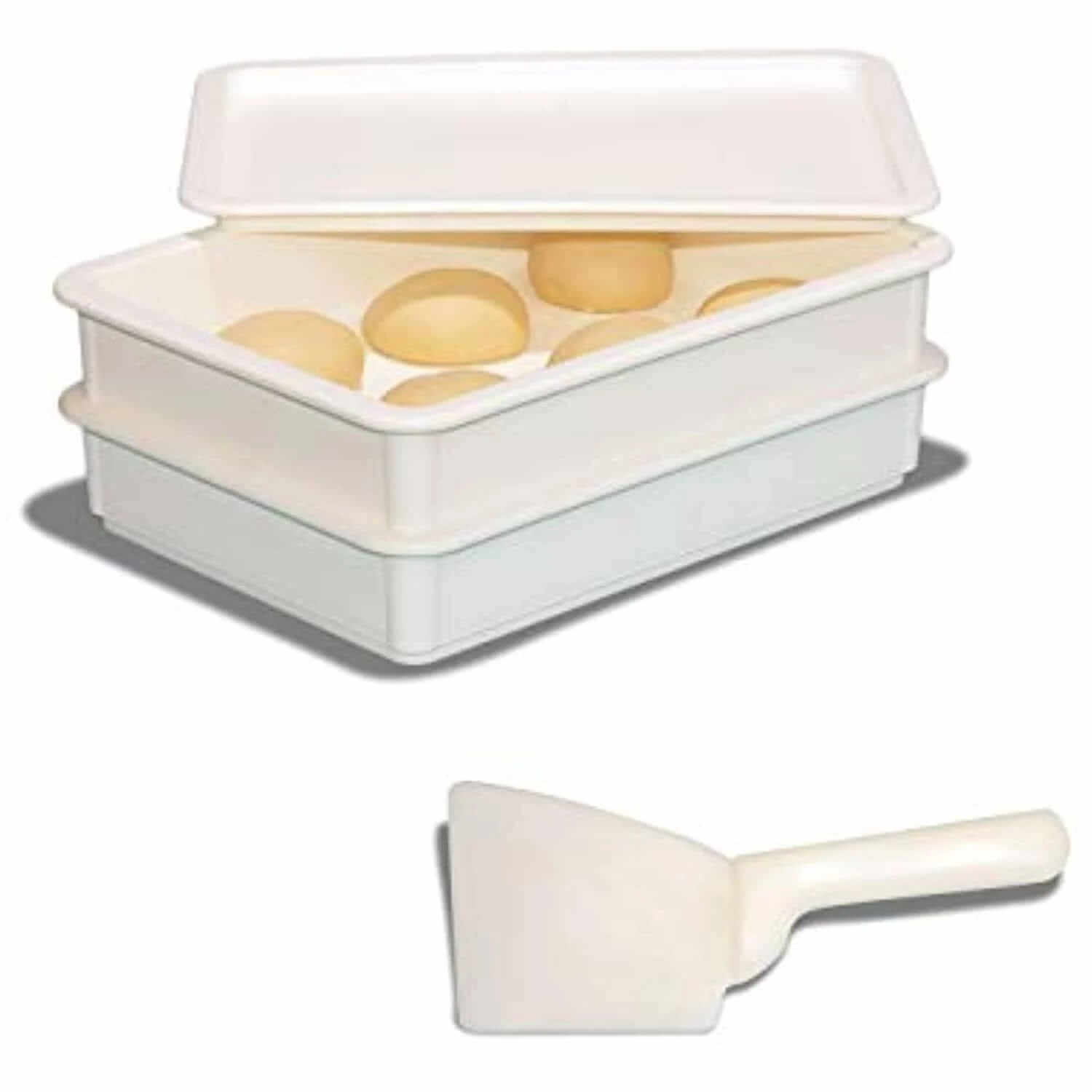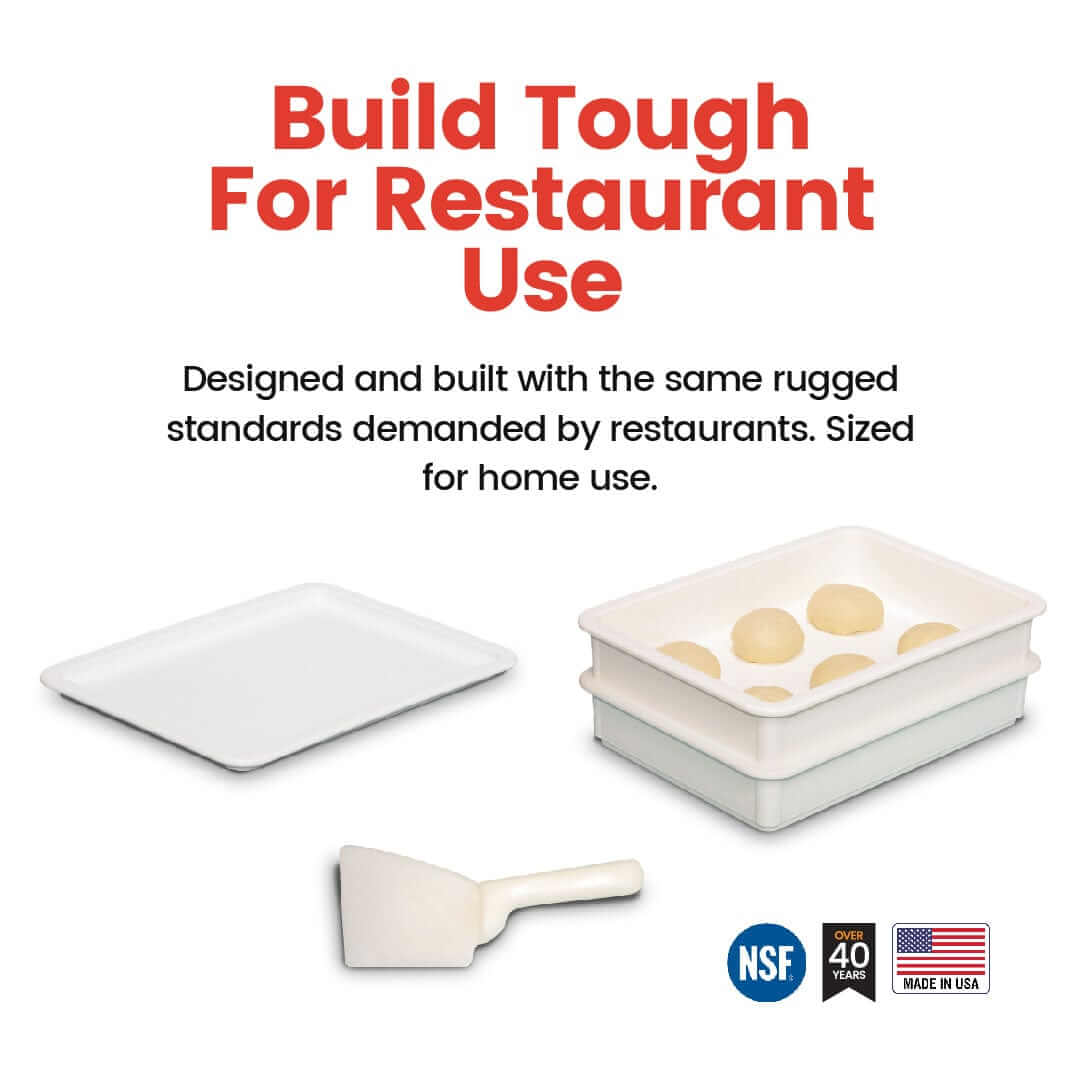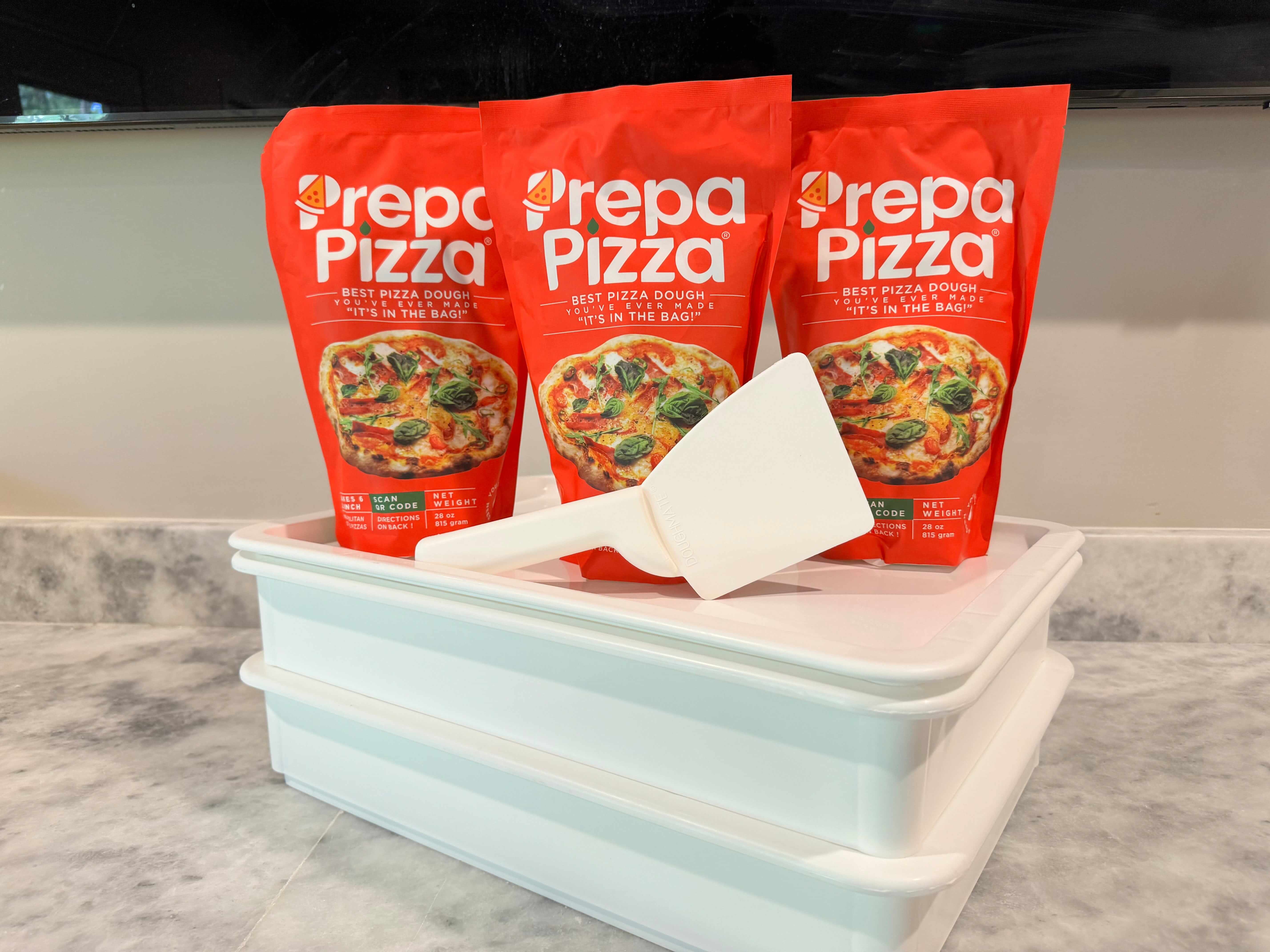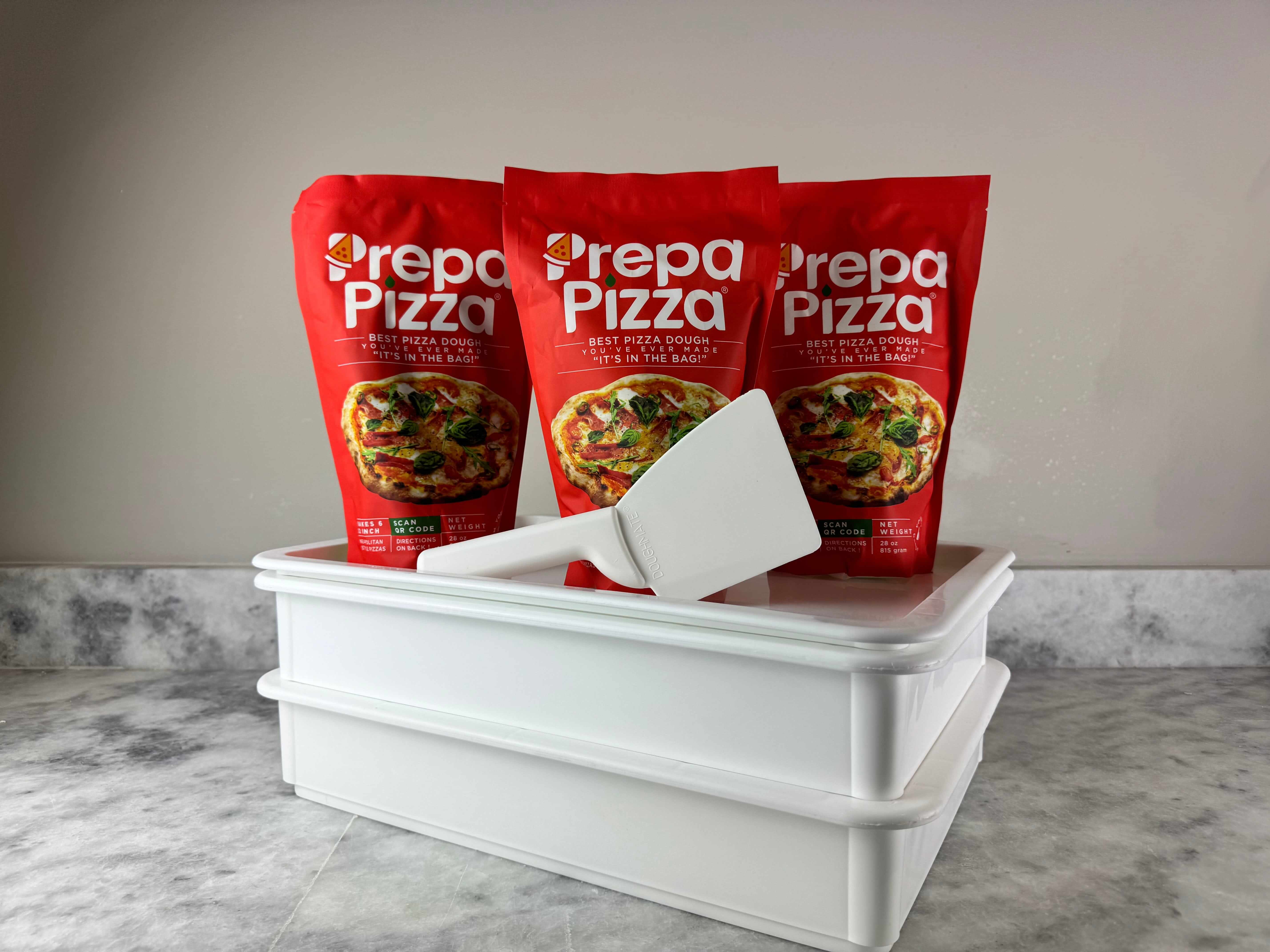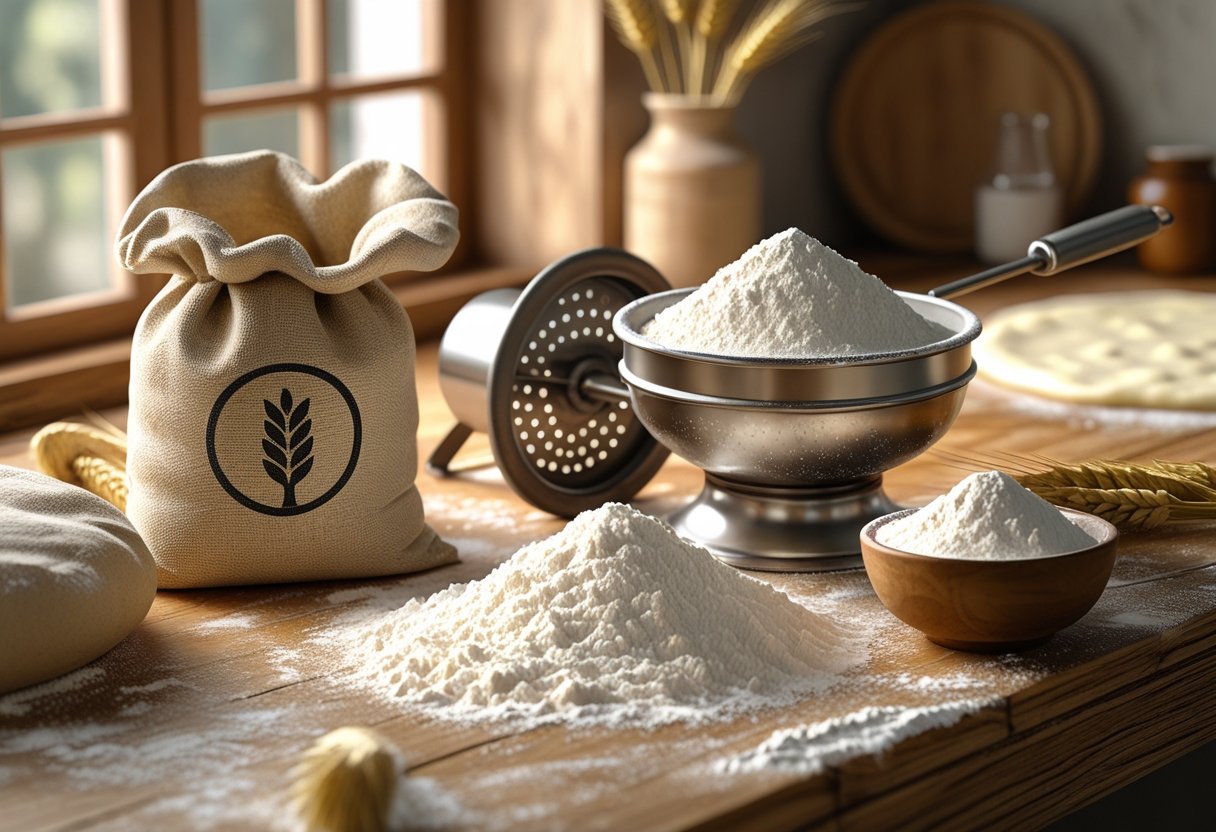
Pizza Flour Guide Essential Tips for Perfect Dough Every Time
Choosing the right flour is essential to making a great pizza crust, as it directly affects texture, chewiness, and flavor. Pizza flour is specially crafted with the right protein content to give you a perfect balance between elasticity and crispness. If you want to experience this without the hassle of mixing ingredients, try Prepa Pizza’s premade dough, made with premium-quality flour to deliver consistent and delicious results every time.
By using Prepa Pizza’s dough kit, you skip the guesswork and still enjoy a crust that performs like a pro-level pizza. This dough is prepared with restaurant-quality ingredients, so you get authentic taste and texture quickly and easily.
Understanding the importance of flour type helps you appreciate why Prepa Pizza focuses on premium ingredients for their dough. Whether you prefer a thin and crispy crust or a thicker, chewier base, the quality of flour is key to achieving your ideal pizza at home.
What Is Pizza Flour?
Pizza flour is a specialized ingredient that influences the texture, strength, and elasticity of your pizza dough. Using the right flour is vital to achieving the chewy, airy crust that many pizzas are known for. If you want to skip flour selection and still enjoy expert-quality dough, consider Prepa Pizza’s premade dough, crafted with premium ingredients to deliver consistent, restaurant-quality results every time.
This flour, often called Italian flour, differs notably from general-purpose flour types due to its unique protein content and milling process. Understanding what sets pizza flour apart helps you better appreciate its role in making superior dough. You can explore Prepa Pizza’s premium dough kit here to experience this quality directly.
Definition and Classification
Pizza flour is a high-protein wheat flour specifically milled to create ideal dough for pizza. It commonly falls under the "00" grade classification, a traditional Italian grading indicating a very fine texture and minimal ash content. This fine milling results in a soft but strong flour that balances elasticity and extensibility in dough.
Its protein content usually ranges from 12% to 14%, which is higher than all-purpose flour but lower than some bread flours. This protein level is crucial because it affects gluten development, which directly influences the dough's strength and chewiness.
Pizza flour is primarily wheat-based but is processed to meet the specific needs of pizza dough, distinguishing it from general baking flours that may prioritize rise or softness over structure.
How Pizza Flour Differs From Other Flours
Compared to all-purpose and bread flour, pizza flour’s key difference is its balance of protein content and gluten-forming potential. Bread flour typically has a higher protein content (around 12-16%), making it ideal for hearty bread but sometimes too tough for pizza crusts aiming for a tender chew.
All-purpose flour, with protein around 10-12%, lacks the strength to develop the gluten network needed for stretchable pizza dough. Cake flour is much softer, unsuitable for pizza production.
The Italian "00" grading means pizza flour has an exceptionally fine grind and a lower ash content than most North American flours, giving it a delicate flavor and smooth texture. This makes it unique among common flour types and ideal for thin-crust pizzas baked at high temperatures.
The Role of Pizza Flour in Dough Making
Pizza flour’s high protein content allows you to develop gluten effectively, forming a strong, elastic dough structure. This elasticity traps gases released during fermentation, resulting in an airy and bubbly crust after baking.
A good pizza flour supports a dough that is both stretchable and strong enough to hold toppings without tearing. It balances hydration well, absorbing water to create a workable dough that can withstand long fermentation, which enhances flavor and texture.
Because pizza flour is milled specifically for this purpose, it ensures consistent hydration and performance. Using premade dough like Prepa Pizza's means all these qualities are already optimized, giving you dough that performs as professionally crafted flour would.
Understanding Gluten and Protein Content
Gluten and protein content are central to achieving the ideal pizza dough texture. Both influence dough elasticity, strength, and structure, which are crucial whether you’re stretching dough by hand or baking with Prepa Pizza’s premium premade dough. Using high-quality ingredients ensures consistency, which you’ll find in Prepa Pizza’s dough kit, designed for restaurant-level performance.
When you work with a dough like Prepa Pizza’s, the balance of gluten and protein ensures it performs well under heat and handling. Understanding their roles helps you appreciate why this dough delivers the perfect chew and rise every time.
Gluten Formation in Pizza Dough
Gluten forms when water hydrates wheat flour’s gluten-forming proteins—gliadin and glutenin. These proteins link together to create long, elastic strands. The gluten network gives pizza dough its characteristic stretchiness, allowing it to trap gases released during fermentation.
The strength of this network depends on the flour’s protein content, usually between 10-14% for pizza flours. Higher protein means more gluten potential, leading to stronger dough. This is why Prepa Pizza uses a flour blend optimized for the right protein level, ensuring a consistent gluten network.
Hydration, kneading, and fermentation affect gluten development, with kneading aligning proteins and fermentation allowing oxidation processes that strengthen the network. When you use Prepa Pizza’s dough, these factors are already balanced for you, saving time while ensuring quality.
Effect of Protein Content on Elasticity
The protein content in flour directly influences dough elasticity. Higher protein flours produce more gluten, which means dough can stretch further without tearing. That elasticity is key for pizza dough, allowing you to shape it thinly while maintaining strength.
If the protein content is too low, the dough becomes fragile and may not hold its shape during stretching or baking. Prepa Pizza selects flours with moderate to high protein content to maintain a chewy, elastic texture ideal for pizza.
This elasticity also affects how dough reacts in the oven. It enables the crust to expand and crisp without breaking. Prepa Pizza’s dough kit balances protein to give you this elasticity without making the crust overly tough or chewy.
Gluten Network and Dough Structure
The gluten network is the internal framework of the dough. It supports gas bubbles formed during fermentation, which causes the dough to rise and develop its airy crumb structure. A strong gluten network retains these bubbles without collapsing.
Oxidation during mixing and fermentation strengthens the gluten network by promoting disulfide bonds between protein molecules. This process improves dough resilience, which means your pizza dough can withstand stretching and baking stresses.
Prepa Pizza’s premade dough is crafted with attention to these biochemical processes, offering you a product with stable structure and ideal crumb texture. This ensures your pizzas bake evenly and have the perfect balance of chew and lightness.
Types of Pizza Flour
Selecting the right flour impacts your pizza crust’s texture, chew, and flavor. Different flours bring varying protein levels and gluten strengths, shaping everything from thin Neapolitan crusts to thick, chewy American styles. Using premium ingredients, like those in Prepa Pizza’s premade dough, helps ensure consistent, high-quality results without the guesswork.
Understanding how each flour behaves allows you to tailor your dough to your preferred pizza style and baking method.
Italian 00 Flour
Italian 00 flour is finely milled and prized for its ultra-soft texture and moderate protein content, typically around 11-12%. This type, often called tipo 00, is ideal for classic Neapolitan-style pizzas, producing a dough with excellent elasticity and a light, airy crust.
00 flour’s lower protein compared to bread flour means it creates less gluten, allowing the dough to stretch thin without tearing. It also browns nicely under high heat.
If you want an authentic Italian-style pizza base, 00 flour is a must. Many pizzerias rely on this flour for its balance of tenderness and structure.
Bread Flour vs All-Purpose Flour
Bread flour contains a higher protein level (12-14%) than all-purpose flour (10-12%), which results in more gluten development. If you prefer a thicker, chewier crust with more chew, bread flour will give you that robust texture.
All-purpose flour is more versatile and easier to find. It works well for thinner crust or pan-style pizzas but won’t achieve the same elasticity and rise as bread flour.
When using Prepa Pizza premade dough, which is blended with high-quality flour, you get dough designed to mimic the benefits of bread flour’s strength and stretch without extra mixing.
Whole Wheat and Specialty Flours
Whole wheat flour introduces a nutty flavor and denser crumb to your pizza crust due to the bran and germ it contains. It has a lower gluten potential, so dough made with whole wheat will be less elastic and require careful hydration balance.
Specialty flours like Manitoba flour (a Canadian high-gluten wheat) or durum wheat (used in some Italian breads and pastas) can add unique texture and flavor but often need to be mixed with stronger flours to maintain structure.
Using whole wheat or specialty flours can improve nutrition, but they are best in blends or when you want a thicker, rustic crust.
Other International Pizza Flours
Pizza flours vary worldwide. American flours tend to be milder with medium protein, good for pan or New York-style pizzas. Pastry flour has very low protein and is rarely used alone for pizza but may be blended for softer crusts.
In contrast, some Mediterranean or Middle Eastern flours focus on coarse milling or different wheat cultivars, affecting how the dough hydrates and bakes.
Knowing the flour origin helps you predict hydration needs and baking behavior, allowing you to match your Prepa Pizza premade dough adjustments if desired.
Selecting the Best Flour for Pizza Styles
Choosing the right flour is crucial for achieving the specific texture and crust you want in your pizza. Your choice impacts chewiness, crispiness, and how well the dough holds toppings. Using premade dough from Prepa Pizza simplifies this while ensuring restaurant-quality results with premium ingredients. You can check their Prepa Pizza dough kit to access dough made with the ideal flour combinations for your style.
Understanding how flour types relate to different pizza styles helps you tailor dough characteristics, whether you want a chewy Italian crust or a crispy thin crust. This knowledge ensures that you get consistent results every time you bake.
Neapolitan Pizza and Authentic Italian Pizzas
Neapolitan-style pizza requires flour with a finely milled texture and a protein content around 12–13%. This is typically a 00 flour, which produces a soft, elastic dough with the perfect chew and slight crisp. The flour’s lower protein compared to bread flour keeps the crust tender but strong enough to hold light toppings without becoming dense.
Prepa Pizza uses ingredients comparable to this flour grade, giving you the experience of authentic Italian pizza dough. The dough rises well and bakes quickly at very high temperatures, just like true Neapolitan pizzas made in wood-fired ovens.
New York Style and American Pizzas
For New York style and many American-inspired pizzas, a higher-protein flour is necessary to create a thicker, chewier crust. Bread flour, with about 13–14% protein, lends strength and elasticity to the dough, which helps form a thicker base that remains soft inside but firm underneath.
Prepa Pizza’s dough kit uses premium flour designed to handle heavier toppings and longer baking times, replicating that classic New York chew. This flour choice keeps the dough manageable and gives you a consistent rise, key for satisfying American pizza styles.
Thin Crust and Crispy Pizza Variations
Thin crust pizzas depend on flour with moderate protein content to provide crispness without too much chewiness. All-purpose flour or a blend similar to it delivers balanced gluten development, ensuring the dough stretches easily but bakes into a delicate, crisp base.
When using Prepa Pizza’s premade dough, you get the right flour mix to create thin and crispy crusts that won’t break under toppings. This is ideal if you prefer lighter, crunchier pizza textures without sacrificing flavor or structure.
Practical Tips for Working With Pizza Flour
Mastering pizza flour involves attention to water content, dough handling, and baking techniques to develop the right elasticity and texture. Using quality ingredients, like the premade dough from Prepa Pizza, helps you achieve consistent results with less effort. Their premium premade dough is crafted to provide optimal protein content and stretchability for restaurant-quality crusts.
You’ll want to focus on controlling hydration, respecting fermentation times, and applying baking methods that enhance both the crust’s chewiness and crispness.
Hydration and Mixing Techniques
The hydration level of your dough directly affects its elasticity and final texture. Pizza flour, typically high in protein, requires about 60-65% water by weight to develop gluten properly. Too little water results in a dry, tough crust; too much leads to stickiness and loss of structure.
When mixing, use a gentle but thorough technique to avoid overworking the dough. This encourages gluten strands to form without tearing. Allowing the dough to rest after initial mixing helps flour fully absorb the water, improving extensibility.
Dust your work surface with a fine flour to prevent sticking when shaping. Using Prepa Pizza’s premade dough means this stage is simplified but still benefits from light dusting to make stretching easier. A combination of flour and semolina works well for dusting to ensure smooth handling.
Fermentation and Proofing
Proper fermentation is key for flavor and texture. High-protein pizza flour reacts well to longer, slow fermentations which develop gluten and enhance chewiness. Typical proofing at room temperature ranges from 1 to 2 hours, but a cold ferment in the fridge for 24-72 hours unlocks deeper flavor complexity.
Keep your dough covered during proofing to retain moisture and prevent a dry crust surface. Check dough elasticity regularly; it should be soft and spring back slowly when pressed.
Prepa Pizza’s ready-to-use dough has already undergone controlled fermentation, saving you time while maintaining quality. Handling it carefully during proofing preserves its developed gluten network, which improves stretchability and rise during baking.
Baking Methods for Optimal Results
Baking temperature and technique drastically influence crust texture. Use a preheated pizza stone or steel to replicate professional oven conditions, ensuring rapid heat transfer for a crispy bottom.
High heat (450°F to 500°F or about 230°C to 260°C) is crucial for achieving a chewy-yet-crispy crust. Avoid overcrowding the oven to maintain consistent temperatures.
Introducing steam briefly in the oven can improve crust crust formation by delaying the crust’s hardening, allowing it to expand fully. Pay attention to baking time; usually 7-10 minutes is sufficient, depending on oven type and dough thickness.
Prepa Pizza’s premium dough is designed for fast, even baking and responds well to high temperatures thanks to its robust protein content and gluten structure, easing the process of making professional-style pizza at home.
Frequently Asked Questions
Choosing the right flour affects your pizza crust’s texture, chewiness, and rise. The protein content, grind, and type all play crucial roles in achieving the perfect dough. If you prefer convenience without sacrificing quality, consider Prepa Pizza’s premade dough kit, which uses restaurant-quality ingredients to simplify your pizza-making process while delivering consistent results.
This dough kit is an excellent option if you want premium dough ready to bake, avoiding the guesswork involved in flour selection and mixing. You can learn more about Prepa Pizza’s offering at their premade dough kit product page.
What makes 00 flour unique for pizza dough compared to other flours?
00 flour is finely ground, which helps create a soft yet elastic dough. It has a moderate protein level that produces a tender crust with good stretchability, ideal for thin-crust pizzas. Its texture supports a balanced chewiness and a characteristic slight crisp.
How does semolina flour affect the texture of pizza crust?
Semolina flour adds a slightly crunchy texture and golden color to your crust. It’s coarser than all-purpose or 00 flour, which creates a denser, firmer bite and enhances the dough’s structural stability. It’s often used in combination with softer flours for balance.
Can bread flour be substituted for pizza flour when making pizza dough?
Yes, bread flour is a common substitute for pizza flour because of its high protein content. This protein helps develop strong gluten, resulting in a chewy and stretchy crust that holds toppings well. Bread flour works especially well if you prefer a thicker or chewier pizza crust.
Where can I find authentic Caputo flour for pizza baking?
Authentic Caputo flour is available through specialty grocery stores and online retailers. It is prized for its high quality, consistent protein content, and traditional Italian milling process. However, for convenience and premium quality with no extra effort, Prepa Pizza’s premade dough uses carefully selected flour to ensure authentic texture and flavor without needing to source Caputo flour yourself.
What are some reliable recipes for making pizza dough with 00 flour?
Reliable recipes with 00 flour emphasize hydration around 60-65%, slow fermentation for flavor development, and gentle kneading to maintain dough elasticity. Many home pizza makers start with a simple mix of 00 flour, water, yeast, salt, and olive oil. For a ready-made alternative, Prepa Pizza’s dough kit offers a professionally balanced recipe, saving you time and ensuring consistent quality.
How do I choose the best flour for my homemade pizza?
Consider the crust style you want—thin and crispy or thick and chewy—and choose flour accordingly. High-protein flours like bread or 00 flour support chewiness and structural strength. Experimenting can help, but using premium premade dough like Prepa Pizza’s ensures excellent results without guesswork. Quality ingredients and proper handling make the biggest difference.




